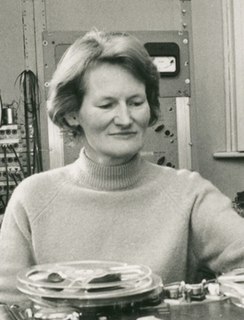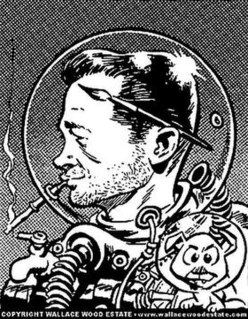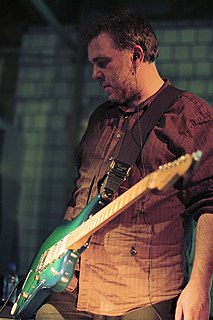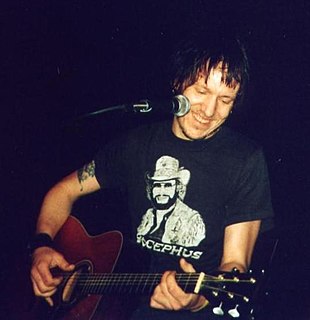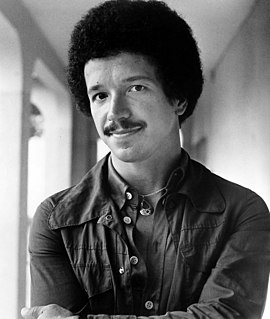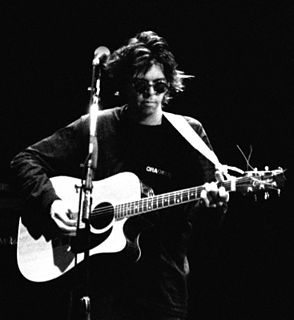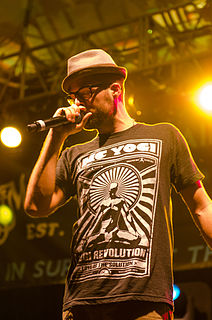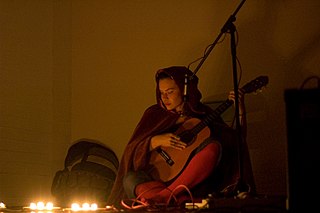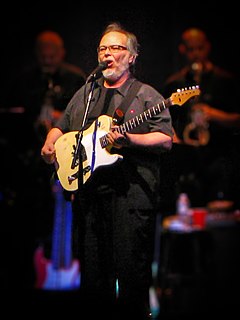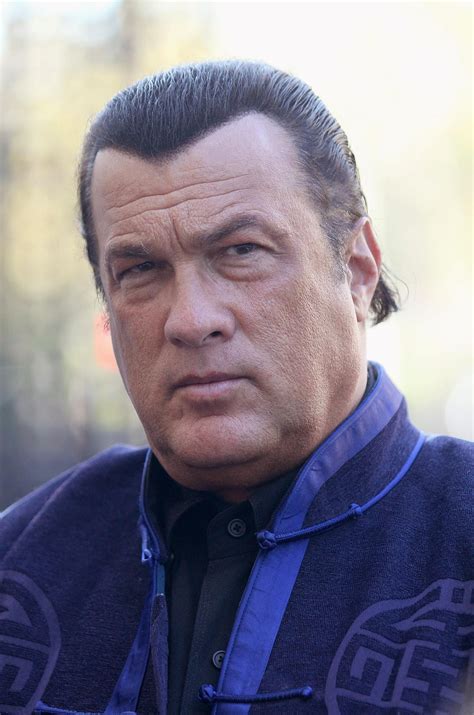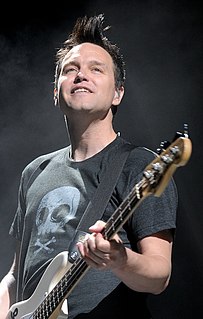A Quote by Daphne Oram
You take a sound, any sound, record it and then change it's nature by a multiplicity of operations. You record it at different speeds; you play it backwards; you add it to itself over and over again. You adjust filters, echoes, acoustic qualities…you produce a vast and subtle symphony. It's a sort of modern magic. We think there's something in it. Some musicians believe it may become an art form in its own right.
Related Quotes
I would INSIST this record is in NO WAY COLD influenced. Don't get me bent though, I have been a huge fan of Cold from day one. One of the best most awesome song writers. Kelly has in OWN sound, He recorded on the POINT OF ORIGIN Record so there, of course, will be something that familiarizes the Cold sound. But Allele is much heavier, and just kind of warmer, different techniques and a different sound all together. Allele I think is more intense.
The first record was basically a quick, fast record. The second record, we were going for more of a poppier sound - like a heavy pop sound. For 'Rocket to Russia,' we'd sort of reached our pinnacle. We'd gotten really good at what we were doing, so that's like my favorite record - that's a really good record. It's just great from beginning to end.
There is some confusion as to what magic actually is. I think this can be cleared up if you just look at the very earliest descriptions of magic. Magic in its earliest form is often referred to as “the art”. I believe this is completely literal. I believe that magic is art and that art, whether it be writing, music, sculpture, or any other form is literally magic.
When I produce someone's record I have to remember it's their record..no matter what I bring to it..er, sometimes that's not too easy:) It is a responsibility made less easy by people I work with encouraging me to play guitar on their record...A soon as I start playing guitar on someone's record it inevitably starts to sound like me...not always a good thing.
I hate the sound of my own voice. It's just up there, sort of naked and exposed. Live is hard, because on my records, I play almost everything on a lot of stuff. In a live situation, I can't control everything. I use two different microphones. One is just clean, traditional sound, and the other one is basically a cheap cassette-recorder microphone that goes through a distortion box to emulate my voice on the record. That helps some.
'Deacon Blues' was special for me. It's the only time I remember mixing a record all day and, when the mix was done, feeling like I wanted to hear it over and over again. It was the comprehensive sound of the thing: the song itself, its character, the way the instruments sounded, and the way Tom Scott's tight horn arrangement fit in.
I've seen my own films close to a thousand times in one form or another. When you edit them. When you shoot them. Then you run them over and over again for sound and music. Then you'd go to premiere screenings, and have to do promotional screenings in other cities. I can't watch any of my old films.
Think of the sound you make when you let go after holding your breath for a very, very long time. Think of the gladdest sound you know: the sound of dawn on the first day of spring break, the sound of a bottle of Coke opening, the sound of a crowd cheering in your ears because you're coming down to the last part of a race--and you're ahead. Think of the sound of water over stones in a cold stream, and the sound of wind through green trees on a late May afternoon in Central Park. Think of the sound of a bus coming into the station carrying someone you love. Then put all those together.
